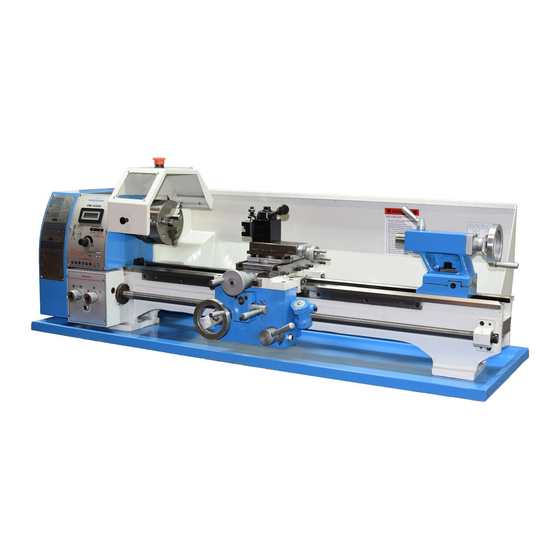
Advertisement
Table of Contents
PM-1030V v5 2020-10
Gearbox and change gears for full-range screw cutting, U.S. (TPI) & Metric
This manual was written for the Model PM-1030V. The PM-1022V is
identical in all respects other than overall weight and bed dimensions.
Items specific to the PM-1022V are noted in this color, italic.
Models PM-1022V & 1030V
110 Vac 1 HP fully equipped machine
Spindle speeds from 50 to 1000 & 100 to 2000 rpm
*
30 in.
(22)
between centers, 10 in. swing over bed
Faceplate, steady & follower rests
Quick change tool post & tool holders
Bi-directional power feed for saddle & cross-slide
Weight, excluding stand approx. 395
*
Models PM-1022V & PM-1030V
1
Variable speed DC motor
Spindle bore: 1 in. clearance
3-jaw and 4-jaw chucks
Copyright © 2020 Quality Machine Tools, LLC
(360)
lb
Advertisement
Table of Contents












Need help?
Do you have a question about the PM-1022V and is the answer not in the manual?
Questions and answers